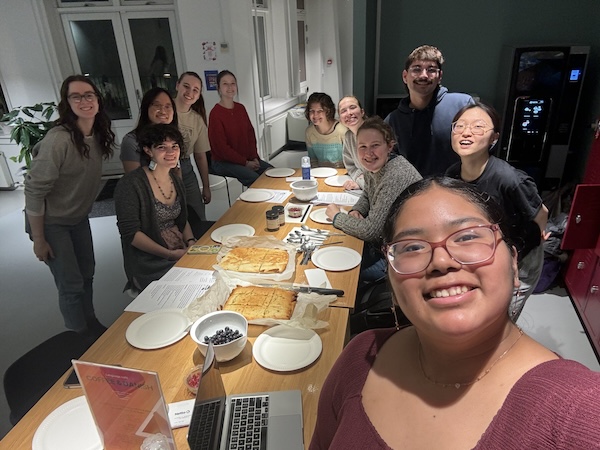Ever since my first year at Princeton, I knew I wanted to study abroad. I wasn’t entirely sure where it would be, but I was certain it would be a significant part of my Princeton experience. Hearing upperclassmen talk about their semesters in Oxford, Australia, Spain, or Kenya filled me with excitement and a touch of apprehension. While the idea of studying abroad thrilled me, the unknown aspects were intimidating. What would it be like to leave campus for an entire semester? How much financial support would I receive? How would I make friends in a foreign place?
Part of my anxiety stemmed from overthinking, but deeper down, I worried about how my identity would be perceived abroad. At Princeton, I had access to incredible resources that supported First-Generation Low-Income (FGLI) students, like the Emma Bloomberg Center and Latine students through the Carl A. Fields Center. These spaces offered me comfort and community and I was unsure if I would find similar support systems while abroad.
Financial Aid
My first introduction to the DIS - Study Abroad Scandinavia (Copenhagen) program came during a meeting with the Scholars Institute Fellows Program (SIFP). A mentor shared their experiences in Copenhagen, Denmark, making it sound like an experience everyone should have. Inspired, I immediately researched the program and soon scheduled a meeting with Jordan, a study abroad advisor. Jordan was exceptionally helpful, addressing all my concerns about studying abroad. One significant issue was covering up-front expenses, such as the flight and enrollment deposit, before receiving my Princeton grant. I couldn't afford these costs, but Jordan worked with the financial aid office to arrange an early release of funds, allowing me to purchase my ticket. This kind of support was invaluable and I’m deeply grateful for Jordan’s help throughout this process.
Budgeting
Once I arrived in Copenhagen, budgeting became a priority. Known for being one of the most expensive cities in the world, Copenhagen presented a financial challenge right from the start. The program provided a grocery card, but I initially made the mistake of shopping at pricier stores. I soon learned that Netto was the go-to market for budget-friendly groceries. Adjusting to the city's 25% sales tax and identifying the best places to shop and eat took some time, but I eventually found my way. Additionally, my program provided a transportation card covering two zones, which allowed me to explore different parts of the city. Despite the initial price shock, I gradually adapted to life in Copenhagen.

Making Friends
One of my biggest concerns was finding people to connect with. The thought of being completely alone in a new country was daunting. Fortunately, I quickly met an amazing group of friends. These were the people I cooked with, traveled with and shared countless memorable moments. Even now, a month after our program ended, we still keep in touch. Making these new friends was one of the best parts of studying abroad. The DIS program attracts students from various universities across the U.S., and while some brought hundreds from their schools, Princeton had only five students, none of whom I knew beforehand. This pushed me to create new connections and build my community. I started a baking club and frequently hosted gatherings in my apartment, which helped me get to know people and form lasting friendships.

Enjoying a New Experience
People often romanticize studying abroad and for good reason—it's one of the best experiences I’ve ever had. However, the worries and apprehensions that come with leaving the familiar are valid. It’s important not to let these feelings prevent you from seizing new opportunities, exploring new places and discovering new aspects of yourself. Studying abroad taught me so much and deepened my appreciation for everything I have at Princeton. The most important thing to remember is that no matter where you go, Princeton will always be there for you when you return.







